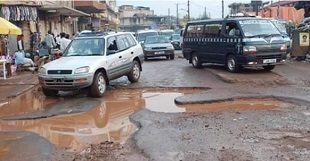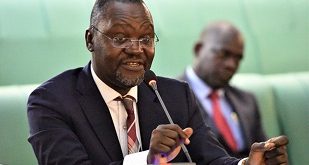
We need to place their actions against international practice even in democracies like the USA, France, and Italy
Since the late January shooting incident in Luzira that killed one person and injured two, the public has been baying for the blood of the “culprits” to wit (now) former director for planning in KCCA, George Agaba and a policeman, Santos Komakech. To whet the appetite of an angry public, the DPP moved fast to charge them with murder. The police also moved swiftly to distance themselves from the incident accusing KCCA officials of going to evict encroachers without notifying them.
Before the ever sentimental section of Uganda’s chattering class lynch me for defending Agaba and Komakech, let me first admit that many of the emotions expressed by the public are justified. Loss of life is a serious matter. With the benefit of hindsight, I suspect even Agaba would admit he should have handled the situation much better. He would also probably admit to a couple of errors of judgement. For instance, he should have gone with a large police force to oversee the eviction. If he looked at the video, even Komakech would probably admit that he should not have been as zealous. I suspect he would also realise that he should have aimed his gun much higher to avoid the tragedy he ended up causing.
However, hindsight is clear sight; we have the hindsight because we have carefully watched the video in the comfort of our living rooms. We have the patience, emotional stability and calmness of our homes and are therefore able to see where there was a chance to exercise restraint. It is like blaming Theo Walcott for that goal he failed to score against Aston Villa in the FA Cup. He could have passed the ball to Van Perse on his left or Song to the far end of the goal post both of whom were unmarked. I suspect during the pressure of the game those off the pitch would see more scoring opportunities than the players.
The problem is that neither Agaba nor Komakech had that luxury we have in our living rooms. They were acting on the spur of the moment and in a hostile environment. They had a mob that was wielding sticks, iron bars and stones surrounding them. And it was making a lot of noise. Noise creates a mood of emergency. The mob can also be seen in the video lynching KCCA enforcement officers with sticks, stones and fists. And it injured 15 of them, six badly. Police have their medical reports. The cameraman focused on Komakech, not the mob.
Komakech is not the monster the mob and its police allies paint in television interviews. The reaction of Komakech is clearly one of self-defence; to save his life and that of the KCCA officers under his charge and who were, by the way, enforcing a lawful order. If Komakech did what he did in the circumstances of attack from a mob in any democracy – Sweden, USA, UK, Norway etc, he would not have been arrested as he was. The NTV video, even with the biases of the cameraman, is enough to show that he was acting in self-defence for himself and the KCCA team.
If Komakech and through him Agaba overreacted, it was because they were at the risk of being overpowered by the mob. In fact during most of the shooting, Agaba himself had escaped from the scene already, his car (and other KCCA vehicles), had their windscreens shuttered by the mob. Even if Komakech and Agaba are accused of overreaction, we should not be blind to the violence meted against officers of KCCA enforcing lawful orders by this mob. The rule of law means that law governed behaviour is the rule. Without the rule of law we have anarchy.
The fact that the mob was armed and was lynching KCCA officials is sufficient justification for Komakech’s actions. We need to place Komakech’s actions against international practice even in democracies. In 1999, the New York Police Department (NYPD) was chasing a serial killer in a city suburb. Then they saw a young guy, Amadou Diallo, who fitted the description of the suspect on the street and ordered him to stop. The boy, an immigrant from Guinea, began running away from the police officers.
As he was climbing the staircase to his apartment, the police caught up with him. They shouted at him to stop and put up his hands. Instead, he stopped and put his hand in his rear pocket to remove something. The officer in charge, fearing the young man could have been pulling out a gun, gave an order to shoot. Forty one bullets were shot at this hapless boy, 19 of them in his chest and he died instantly. When they got to his copse, they found he had pulled only a wallet from his pocket, most likely to show them his identification documents.
The case generated mass hysteria in New York and the whole of America. This was especially so among the African-American community against who police brutality is often selectively applied. Perhaps because of political pressure, the police officers involved in the incident were charged with murder. In fact the trial had to be taken out of New York City to a neutral venue so that public sentiments do not significantly influence the jury. To cut the long story short, the case went up to the supreme court of the USA. The police officers were acquitted. The judges agreed that police action was reasonable given the circumstances; the fear that the suspect was going to shoot and kill the police officers.
I can cite other examples of police in UK, Norway and France who have acted in such a manner during riots. In many such cases, police officers are not charged with murder for defending themselves. If that happened, few people would be willing to join the police to risk their lives for our safety. In dealing with the Agaba-Komakech case, we need to bench-mark them against international practice even in democracies. The public is justified to get emotional about the death of a person but that should not be the guiding rationale for the DPP, the police and other institutions of state.
amwenda@independent.co.ug
 The Independent Uganda: You get the Truth we Pay the Price
The Independent Uganda: You get the Truth we Pay the Price



